“Portraits from London”
A photographic project was initiated and commissioned by the Horniman Museum and the Romanian Cultural Institute and is an Eye-catching exhibition (hosted by the Horniman Museum but also travelling around the country and abroad) of photographs of contemporary Romanians living and working in London, by Romanian photographer Ion Paciu. Around 130,000 Romanians are currently living in the UK. Some have been here for more than 40 years, some have just arrived. Each had different hopes and expectations, and each has had a different experience.
Focussing on Romanians in London, this Romanian Portraits Project introduces some of the stories behind their journeys to the UK, aspects of their lives and their relationship with their homeland and culture.
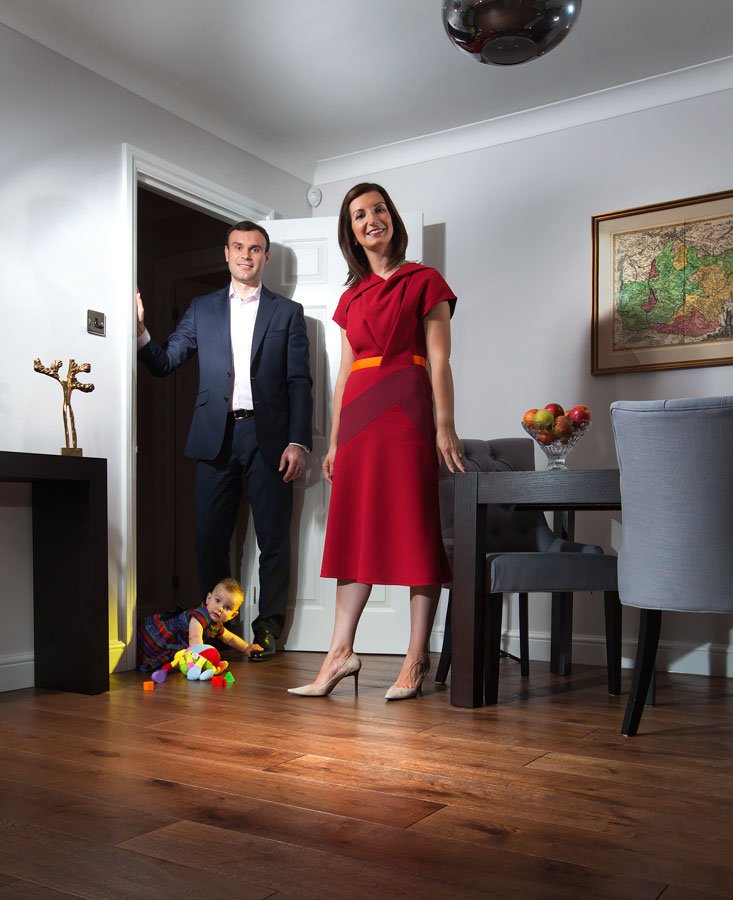
Cristian Comsa & Family – Director – Diana: I left San Francisco in 2008 to join my boy- friend (now my husband) in London and to be closer to my family in Romania. I was 28 at the time. My kitchen has a very thick Romanian cookbook that is pulled out for special occasions. I also brought a horseshoe from my grandfather’s house; it’s for good luck.Cristian: I was overwhelmed by London at first. Commuting can be an issue, but once you allow for longer journeys everything is fine. I have started a new family in London – my wife and I have recently welcomed a baby daughter.
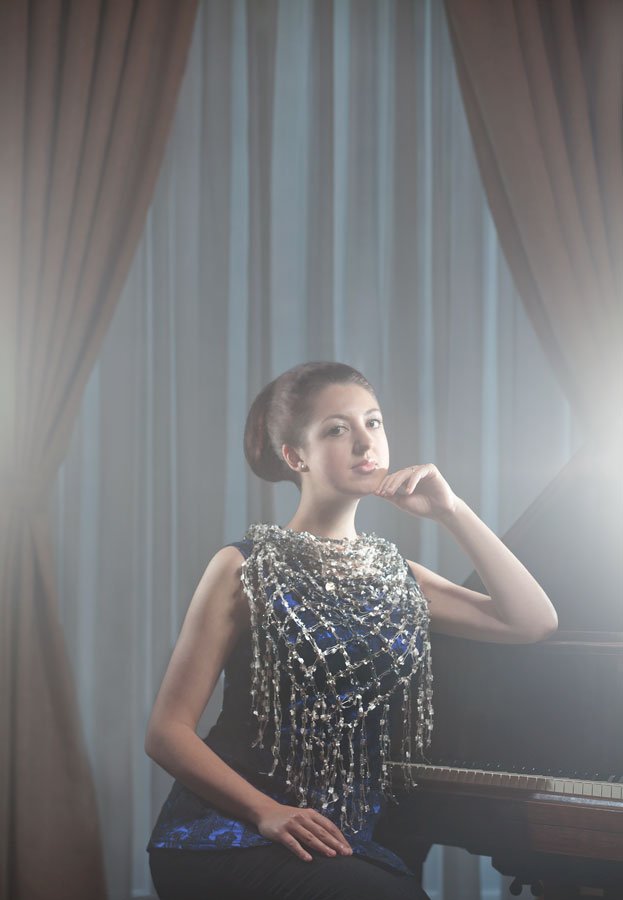
Alexandra Dariescu – Pianist – I came to the UK for the first time in 2002, just my- self, one suitcase and a teddy bear. I had won the Silvestri Music Scholarship for one year at Pocklington School in Yorkshire. I moved to London in 2008 and have loved it ever since. From Romania I always have a little wooden icon that I take with me everywhere. I’ve had it for about 20 years. I never go anywhere without it!
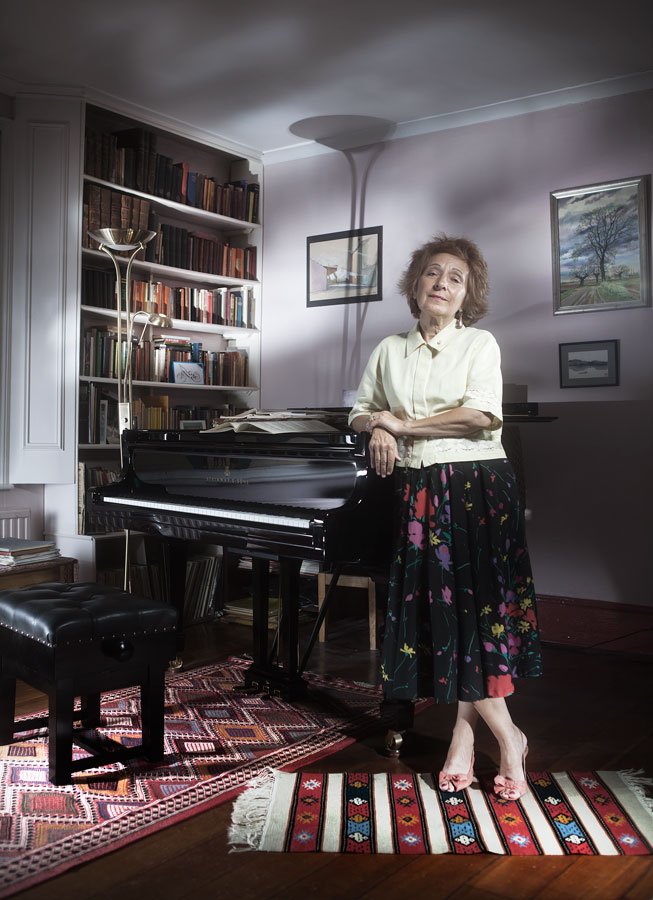
Anda Anastasescu Gritten international concert pianist Command- er of the Order of Cultural Merit (Romania). Woman of Achievement European Arst Award (Britain). Ar- tistic director of the London Schubert Players chamber orchestra and of the Romanian Musical Adventure record label; President of the Constantin Silvestri International Foundation.I was sent to the UK by the Romanian Ministry of Culture to represent Romania in the 1972 Leeds Piano Competition. I was immediately offered a scholarship to study at the Royal Academy of Music, and I have been here ever since. London has changed steadily since joining the EU yet it manages to retain its miraculous capacity to continually adopt other cultures without fear of losing its own. I have an Eng- lish family now, and consider myself very lucky to
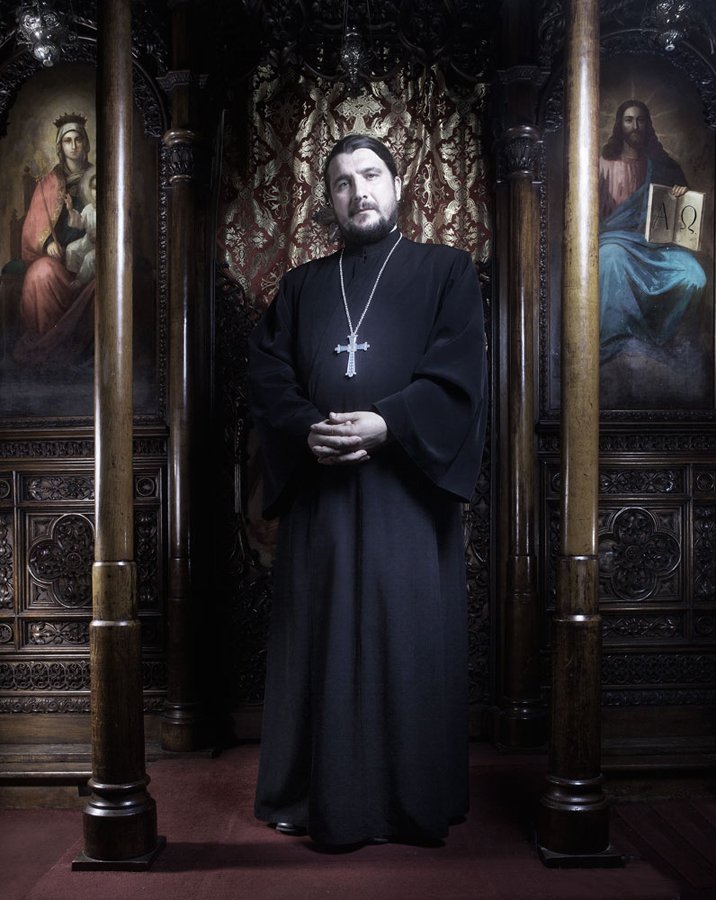
Constantin Popescu – Priest – I came to England in 2002, to a job near Manchester. Two years later I was involved in setting up the second Romanian Orthodox parish in the British Isles and became parish priest there. I was transferred to the Romanian Orthodox Church of Saint George in London in 2013. What do I like best about London? Well, I like the weather here (remember, I came from the Manchester area), the multitude of architectural styles and the openness shown by the people. But I miss the Romanian weather, as well as the monasteries and the food.
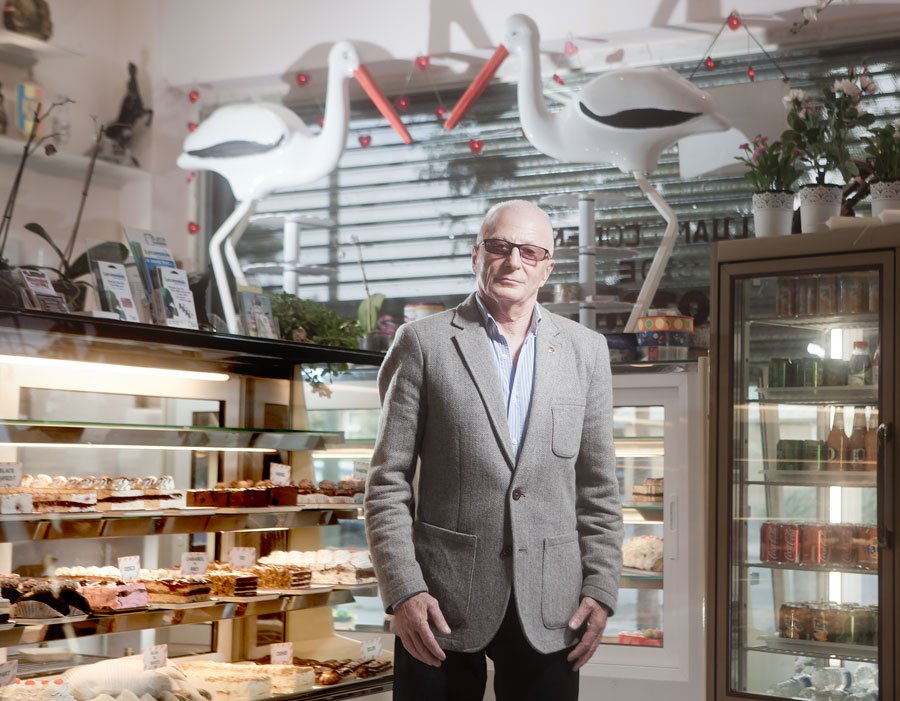
Ovidiu Sarpe – Cake Shop Owner – I left Romania when I was 33, because of the political system as well as other circumstances. I realised I needed to find a job fast. After three weeks in London I started work and I’ve never stopped. I like working: it’s what keeps me alive. In London I can make my own decisions, freely and for whatever reason. But democracy has a price: not everyone appreciates that and some people interpret freedom the wrong way. I have split feelings about home: when I’m in London I feel at home; when I’m in Romania I feel at home again. But I do insist that my children and grandchildren speak Romanian.
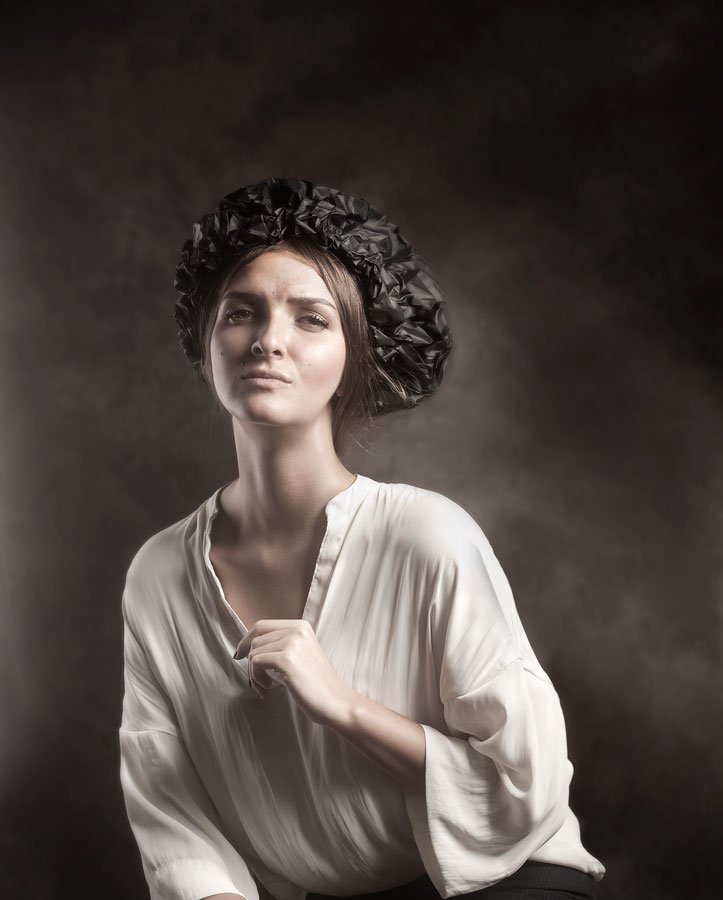
Smaranda Ardelean – Business Planning Executive – I came to London to study for an MSc in Strategic Marketing at Imperial College. I loved London straight away. I think London has made me more independent, more aware, more tolerant, and better prepared for life in general. I wasn’t much of a traditions person when I was in Romania, so I don’t really preserve any traditions here. But I try not to lose my bond with Romania. I love Romania more than before. I understand what my country taught me and how that gives me a competitive edge. And I can only be grateful for that.
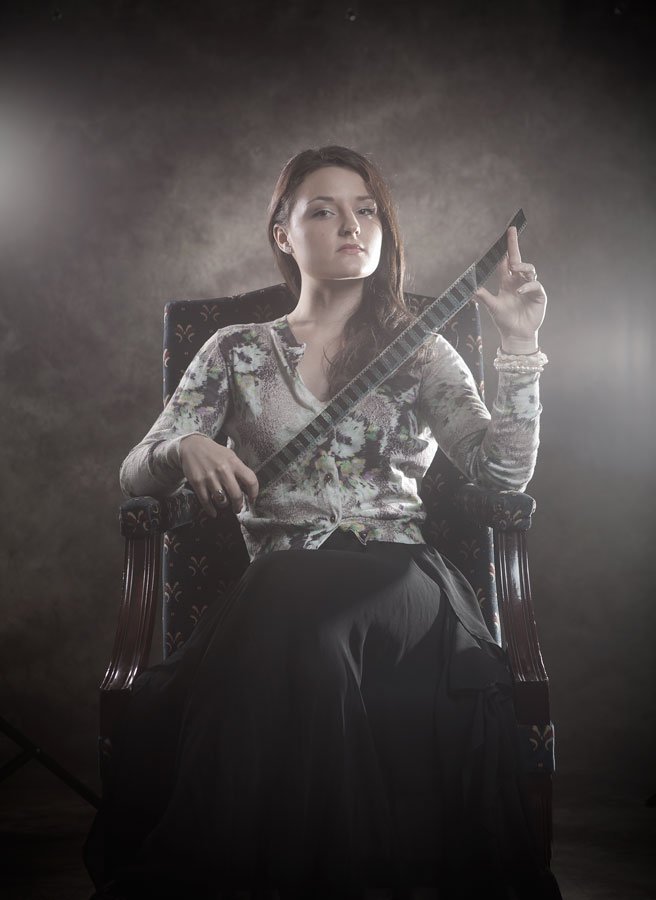
Anda Teglas – Creative Director – I had always wanted to move to London for some quite unexplained reason, and in the autumn of 2010 I bought a one way ticket, and here I was, ready for a new life in the UK. It was the week before my birthday, and I was still quite young and uncertain what I’d do. I found it depressingly hard to land my first job in London, but things started picking up quite fast. London is home to my first business, a film and advertising production company, which I set up at the end of last year.
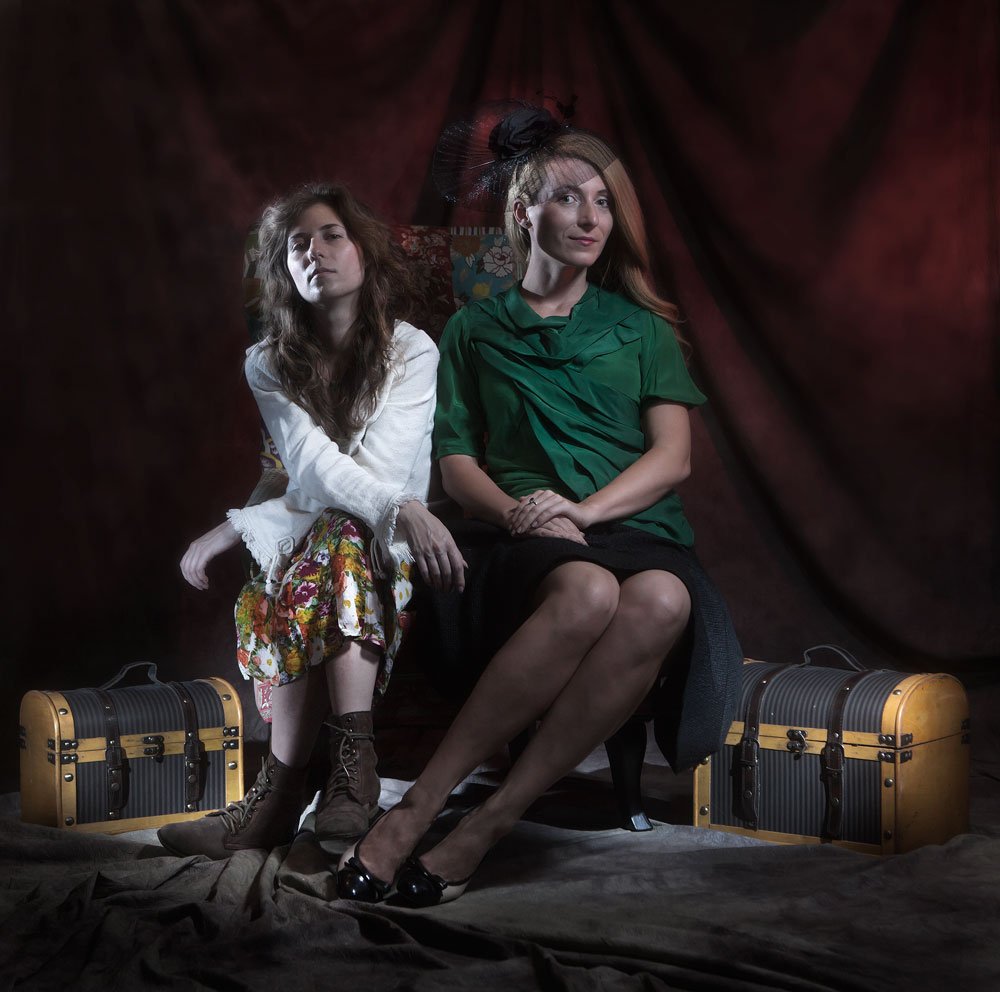
Andreea (left) freelance administrator, and Ruxandra Şeremet – When I first visited London I was 15. I remember I needed a letter of authorisation from my parents to travel alone because I was still a minor. I came back again at 17 for six months, and then after finishing high school in Romania to study at university. I loved it! The vibe, the history, the culture makes it a unique place. But life in London is get- ting more and more expensive. To really consider London my home I would have to think if I could buy a property. I doubt if I’d want to live under the pressure of a 30 year loan.
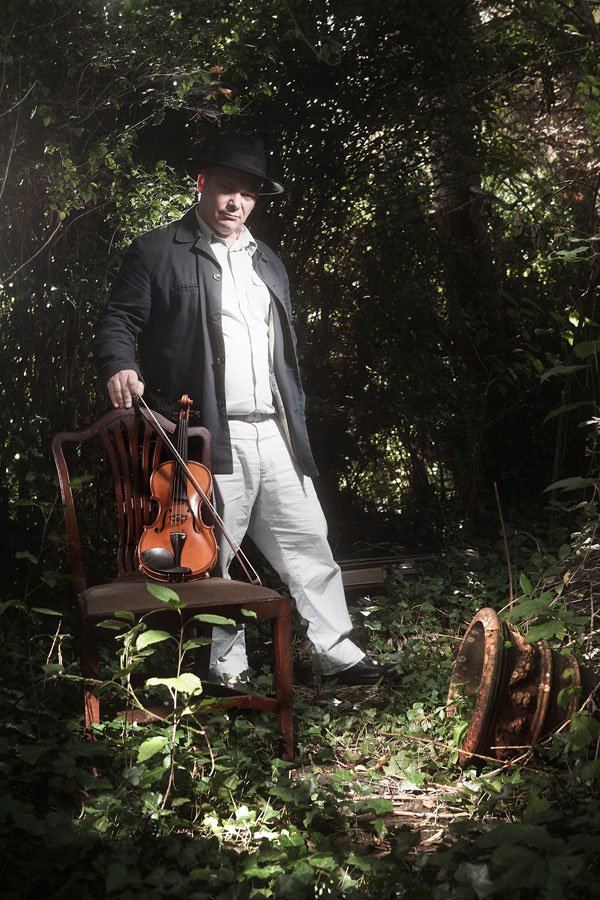
Alexander Balanescu – Violinist and Composer, founder of the Balanescu Quartet – I have been in London for 43 years, most of my life. I came at the age of 15 with my violin and the dream and desire to find an exciting new musical adventure. London has become one of the most expensive cities in the world. It is not easy to survive here. But it is still just about possible to have the freedom to forge a personal, individual way of life, linked to one’s ideas and goals in life. Or is that wishful thinking?
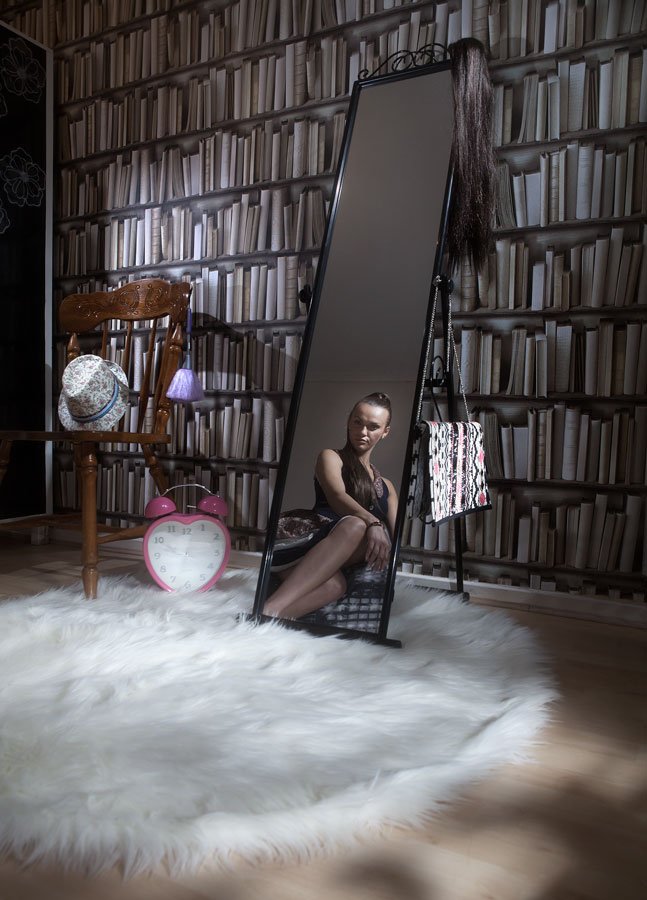
Oana Boghian – hair stylist – When I left Romania I really wanted a change. The recession had arrived, my father’s company was bankrupt and I was just finishing college. A friend encouraged me to come to the UK. He said: ‘Oana, you’re a hairdresser, you’ll find a job quickly and in a year’s time you’ll be able to apply to a university’. It actually took me four years, but it’s never too late. My worst experience was when Student Finance England stopped my support for a whole year, but I survived.
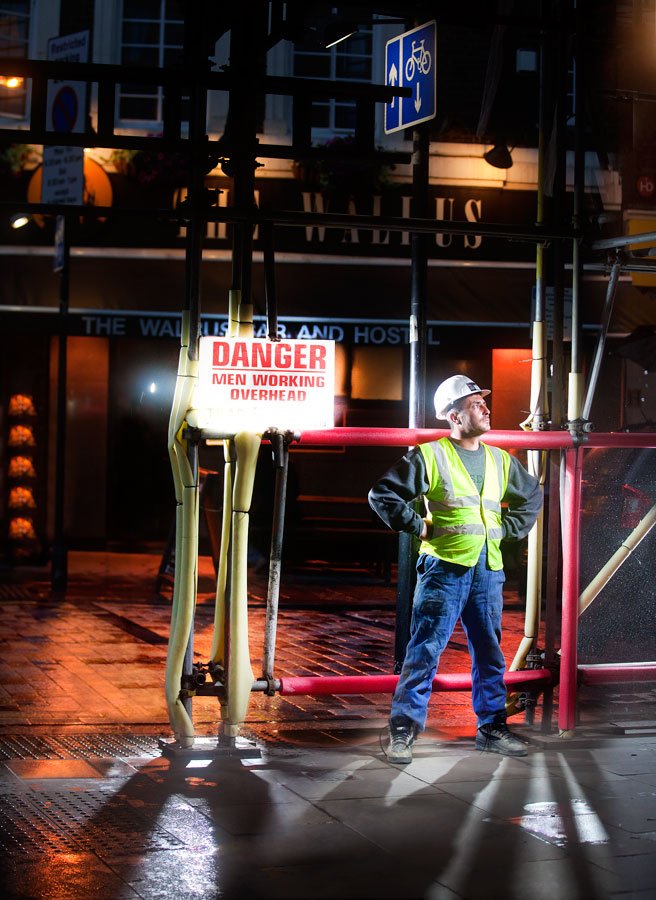
Daniel Stoica – construction worker – I came to London alone to try to make some money to help my daughter. She is studying in Romania. I have been here two years. London is a big city, and very expensive, but overall it has been a good experience. My life has improved through meeting new people and gaining new experiences. I meet other Romanians often, but I miss my family and friends, and Romanian food.
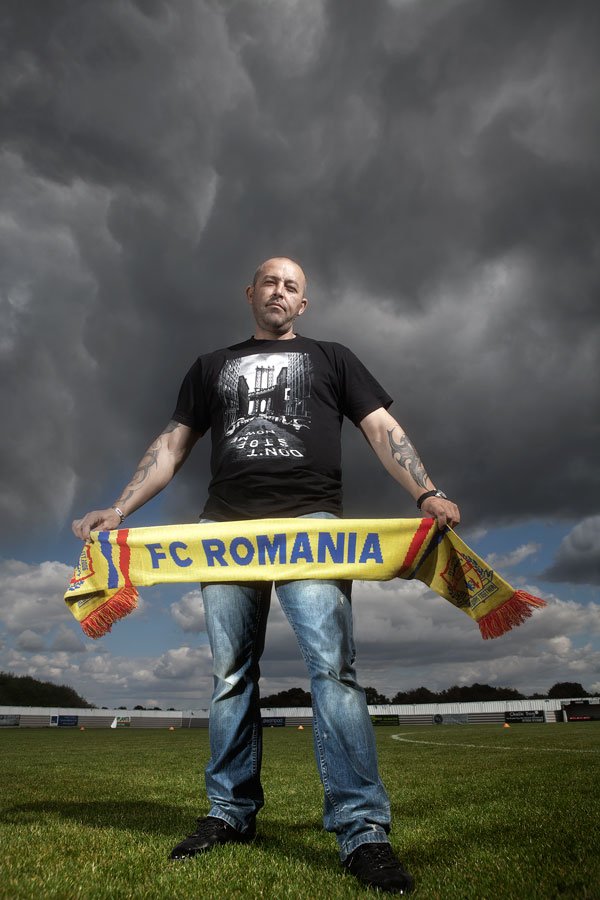
Marius Zmarandescu – Truck driver – I was 40 years old when I had the opportunity to come to the UK to work. I had always been fascinated by English culture. I’m enjoying living here. I don’t have much spare time but when I do I enjoy going to a museum. I miss my family and have two pictures by my bedside: one of my family and the other of my home town. My life has changed because I met my girlfriend here and I’m very happy. London is my home now.
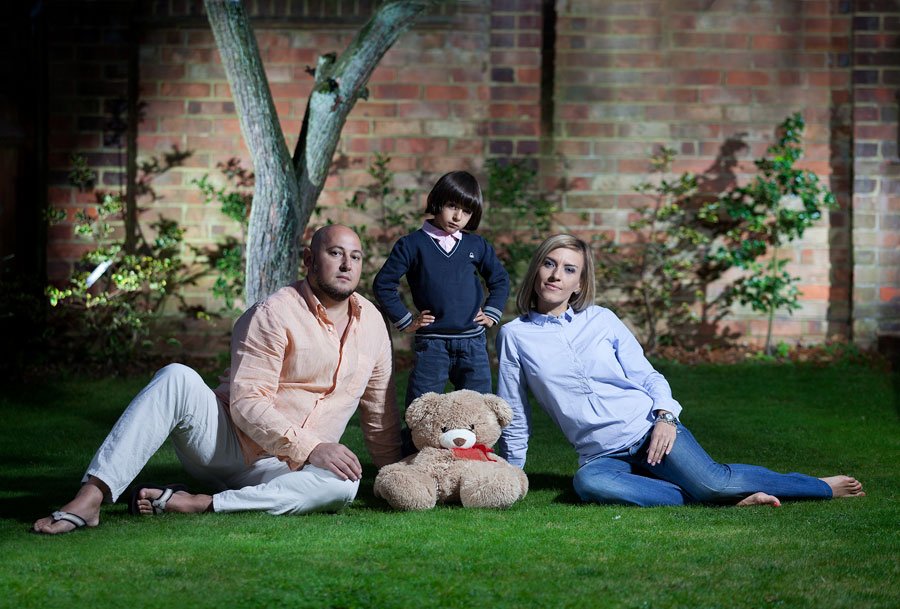
Daniel Mirea & Family – doctor psychologist – After I graduated from high school in Romania in 1990 I came to the UK to take a degree. I have a love-hate relationship with London: I love its size and diversity, but I miss the weather and the nature of Romania. After 25 years, London is absolutely my home. My son can’t even speak Romanian. What Romanian traditions do I maintain? Christmas? I haven’t decided yet whether Father Christmas is Romanian or English…
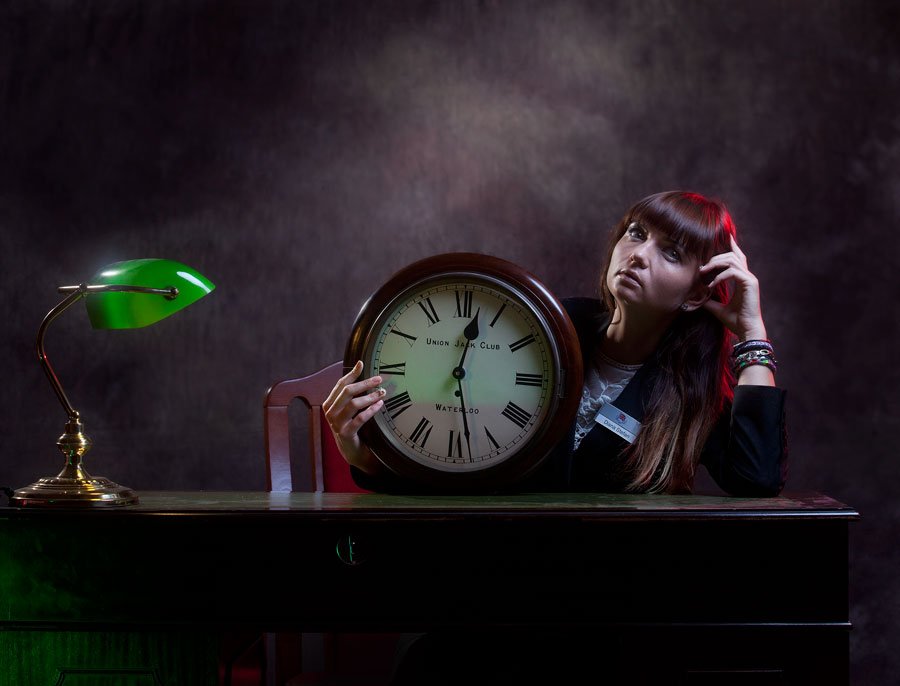
Diana Stefan – Hotel receptionist – I did have a bad experience once. A man asked me where I was from, and then started to tell me all the bad things about Romania. It made me feel like the last person on the planet because I was born in Ro- mania and not in London. But I like the opportunities that London gives you. I have been here for three years now. I try to keep the Romanian Easter and Christmas traditions. I have a Romanian church nearby and I try to go there every Sunday when I have time off work.
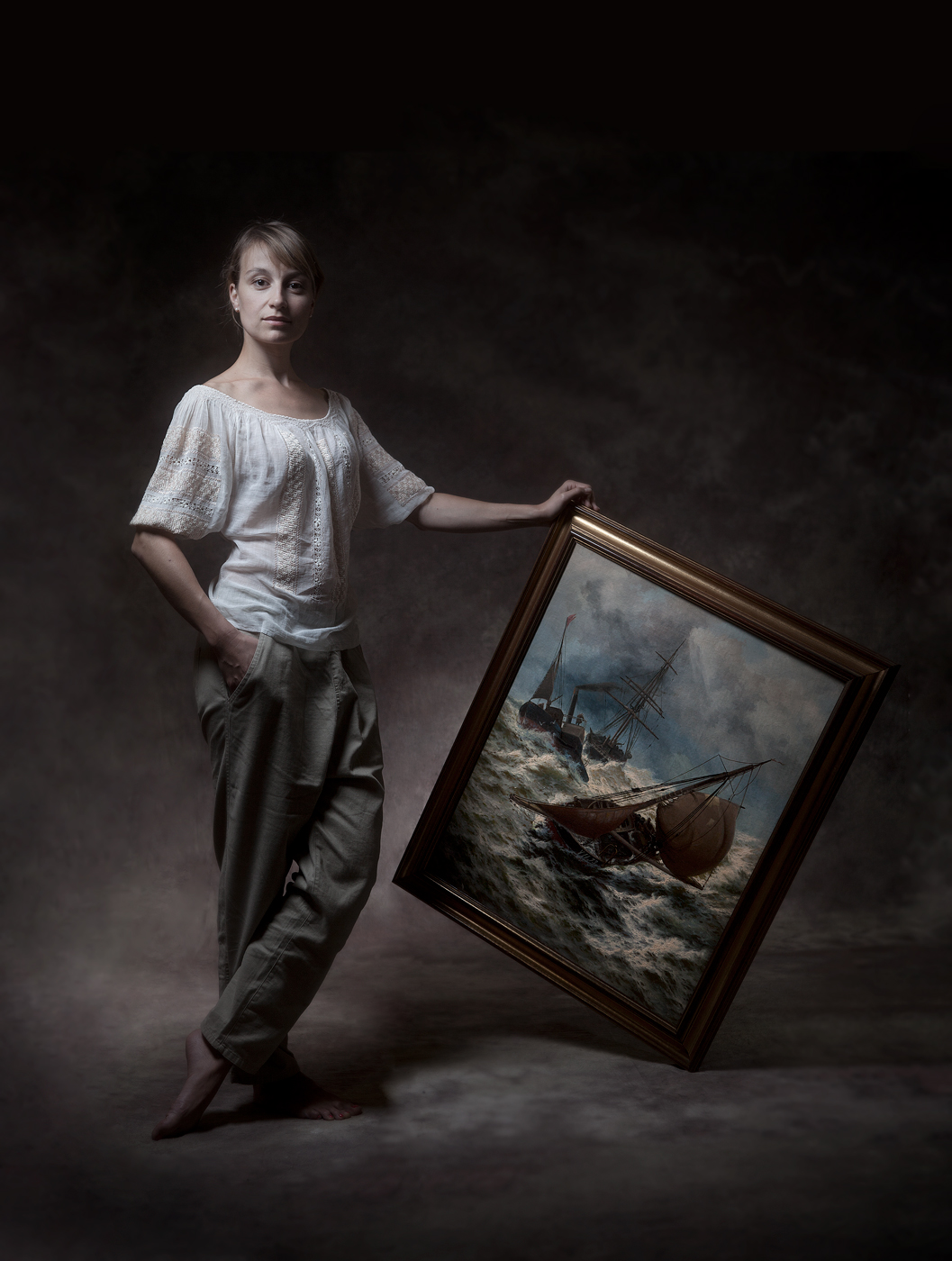
Anamaria Marinca – Actress – I consider London my home now. I was 25 when I came, and my first impression was one of wonder. I believe that assimilating to another culture is al- ways an enriching experience. It taught me patience and the glorious lesson that I occasionally may be wrong. But I do miss my family in Romania, and I always wear my grandmother’s engagement ring.
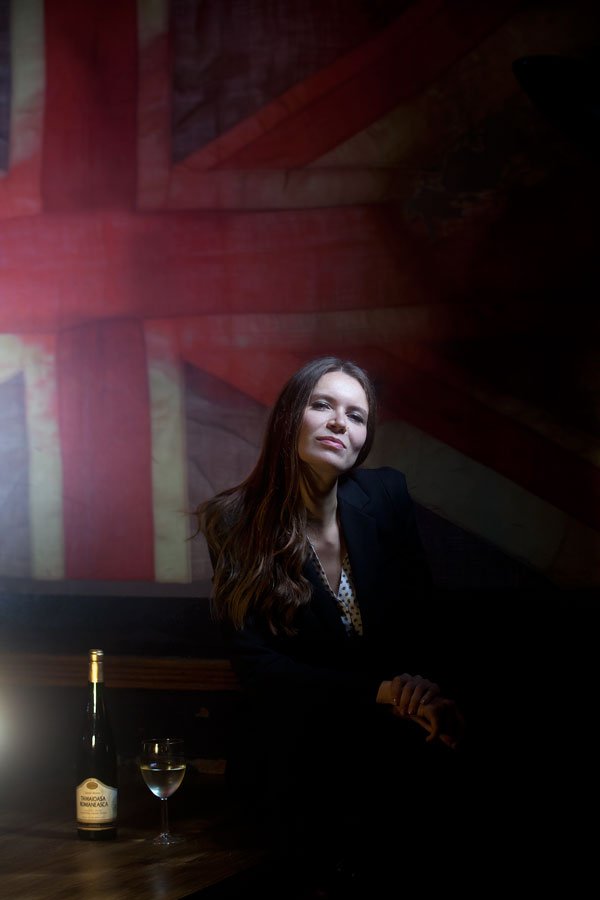
Alina Constantin – Project Officer – I came to London to take a master’s degree. It was one of the best decisions of my life. I was pleasant- ly surprised at how a city like this could be so cosmopolitan, so welcoming and fun at the same time. I do keep in touch with Romanian friends who live in London and I am a member of multiple Romani- an social networking channels.
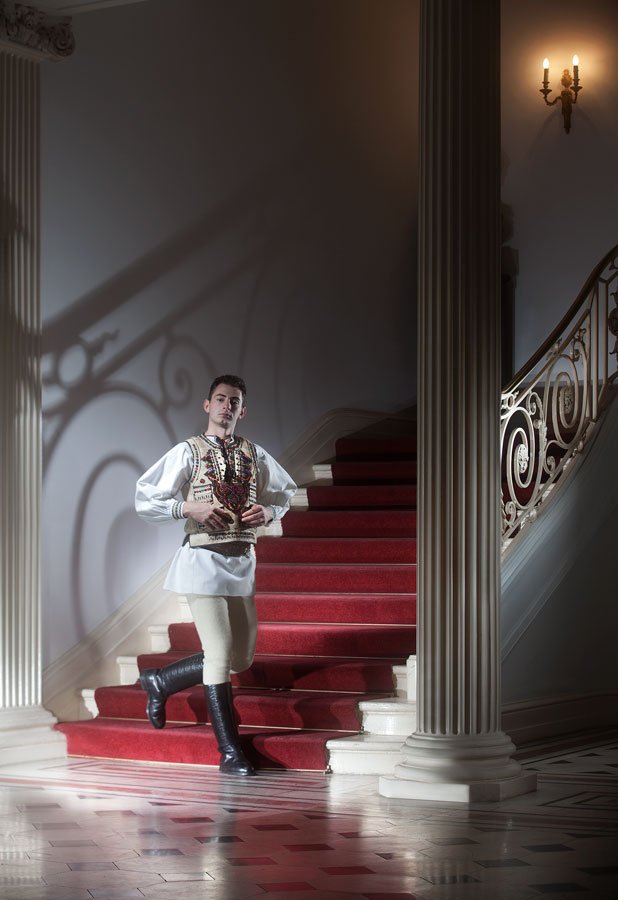
Robert Ionut Pumnea – Romanian Popular Dancer – When I first came to the UK at the age of 12 my parents had been here for 7 years. I came with my grandmother and my little brother. It was wonderful to have the family together again. I studied in a state school in north London for more than 3 years which helped me build my social life and my perspectives for the future. There are things about Ro- mania which I’ll keep forever in my heart and mind: horse rides and walking through the countryside, my grandparents’ village, conversing with neighbours. I use these memories in my songs.
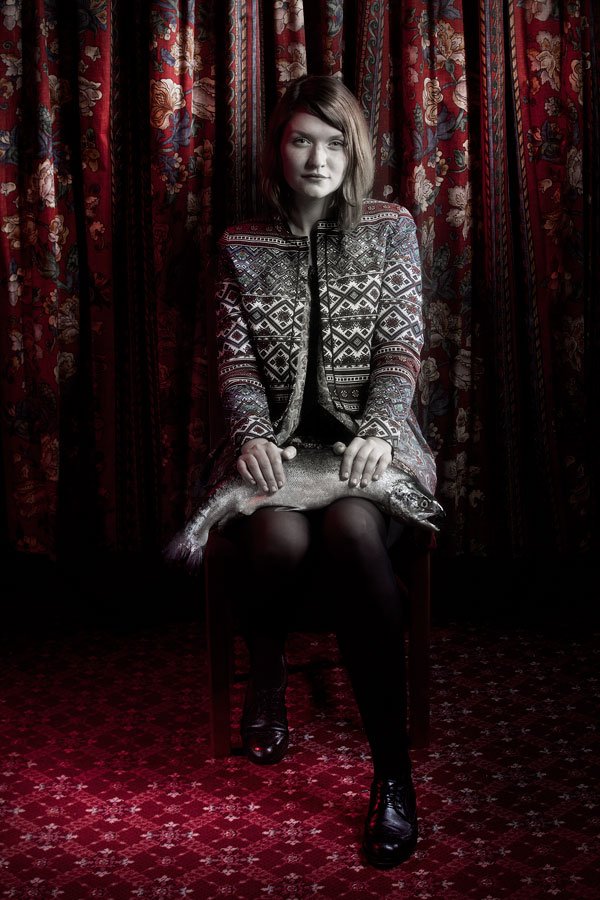
Ira Merzlichin – freelance documentary researcher – I grew up in a Russian cultural minority in Romania, the ‘Lipoveni’, whose main activity is fishing. I carry fresh fish wherever I go to remind me of home. I came to London at the age of 21 to study film. The worst experience was sleeping on my mad landlord’s straw mattress while waiting for my yellow card to come through. What do I like most about London? Art is free and abundant. It’s easy to find just the right people to collaborate on my projects.
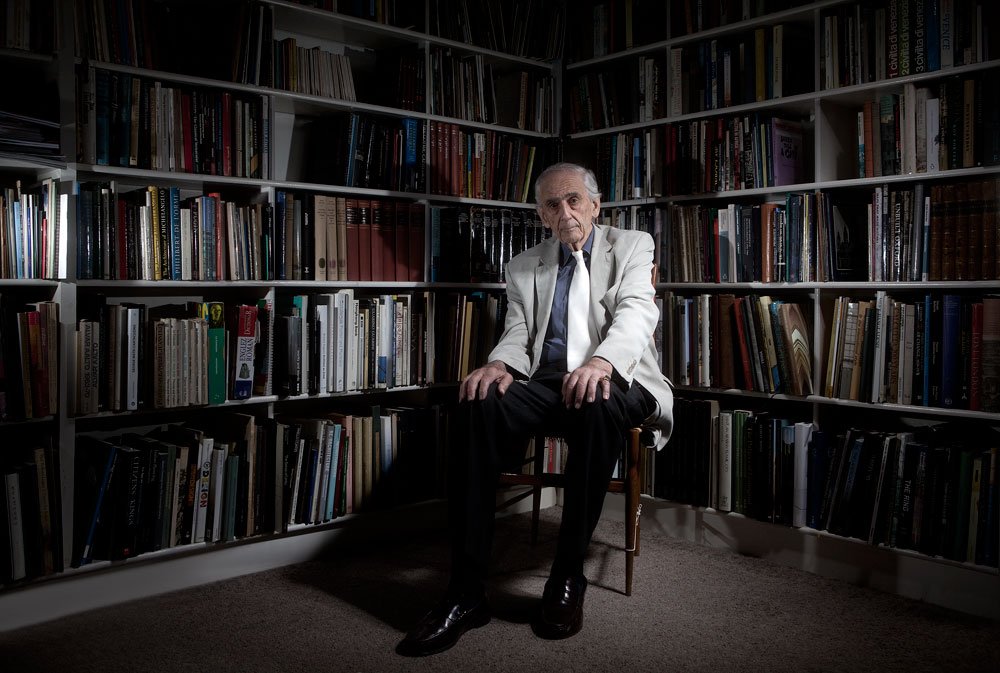
Serban Cantacuzino – President of Pro Patrimonio -The National Trust of Romania – Romania’s drift towards fascism and autocracy in the 1930s as well as the likelihood of war decided my parents to send me and my sister to school in England. I arrived at the age of 11 in September 1939. I settled permanently in London in 1954 after completing my architectural studies and getting married. I realised early on that London was not an obviously beautiful city like Paris, but that it had many kinds of beauty which had to be discovered. London remains a good city in which to live and work, despite the huge increase in car ownership.
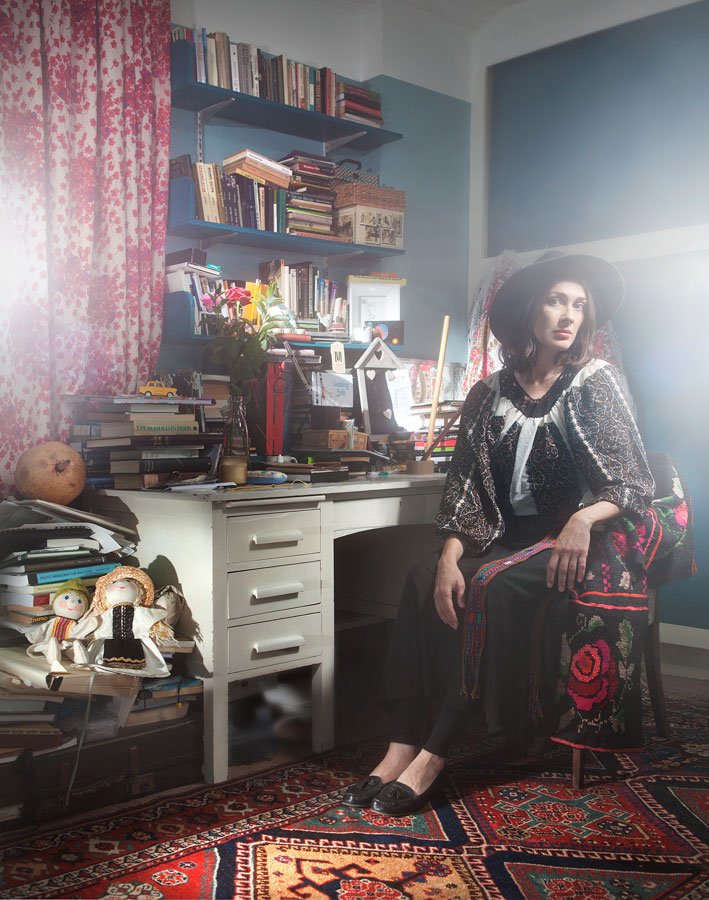
Monica Madas – (aka Monooka) Singer/Songwriter – I came to London with my ex-partner when I was 35. My worst experience in the 7 years I’ve been here was breaking up with my fiancée. Since I’ve been in London I’ve learned to take things easier. This summer I fell in love with Scotland after a week of travelling in the Galloway and Dumfries area. I’m looking forward to going to the Isle of Skye. What did I bring from home? I brought a shepherd’s flute, which I play from time to time.
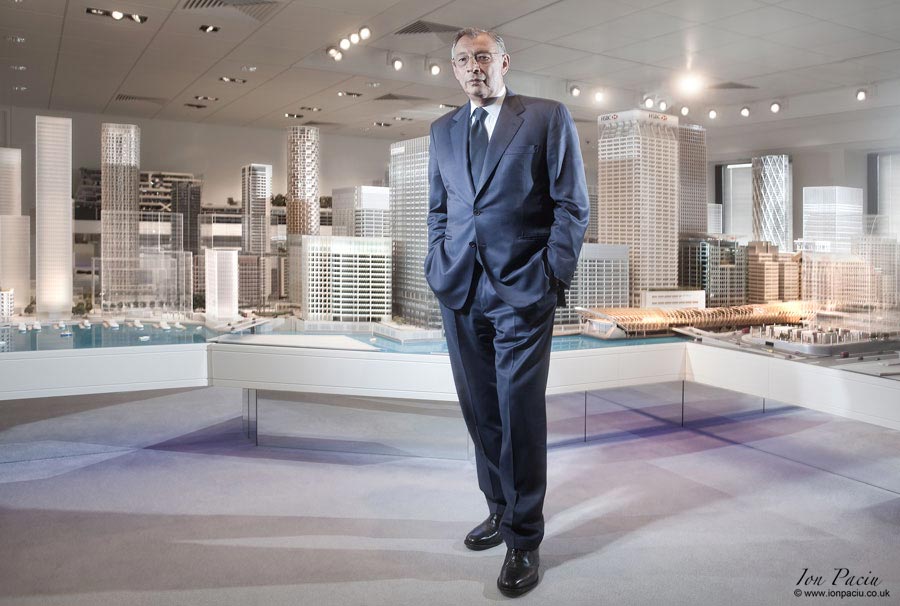
Sir George Iacobescu – CEO Canary Wharf Group – Sir George Iacobescu CBE is the chairman and chief executive officer of Canary Wharf Group, and one of the most successful Romanian born business leaders in the world. He was appointed CBE in 2003 and in December 2011 he was knighted by Queen Elizabeth II for services to charity, community and the financial services industry. He is also a member of the Board of Trustees of the British Museum, Vice Patron of the Royal British Society of Sculptors, and a Patron of Jewish Care and the Community Safety Trust among many other affiliations.
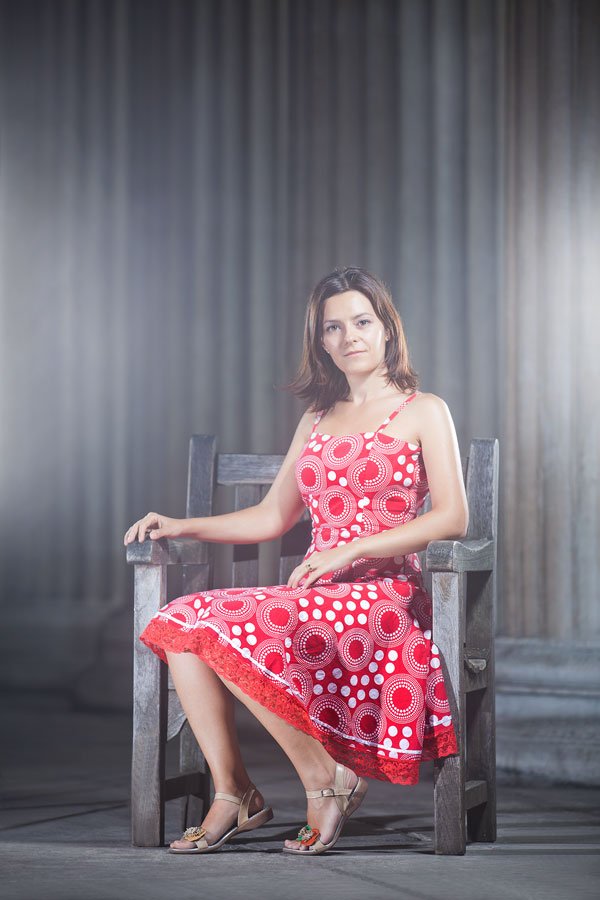
Andrada Ianus – PhD student – I came to London to do a PhD in medical imaging at UCL. My worst experience in London was living in a poorly insulated Victorian house which was very cold in winter. But I really like the international environment and the fact that there are always new places to discover. From Romania I have a couple of mărţişoare, a traditional way of celebrating the beginning of spring. (Mărţişoare are red and white strings to which small decorations are tied, offered by people to each other on the 1st day of March, and worn for the rest of the month).
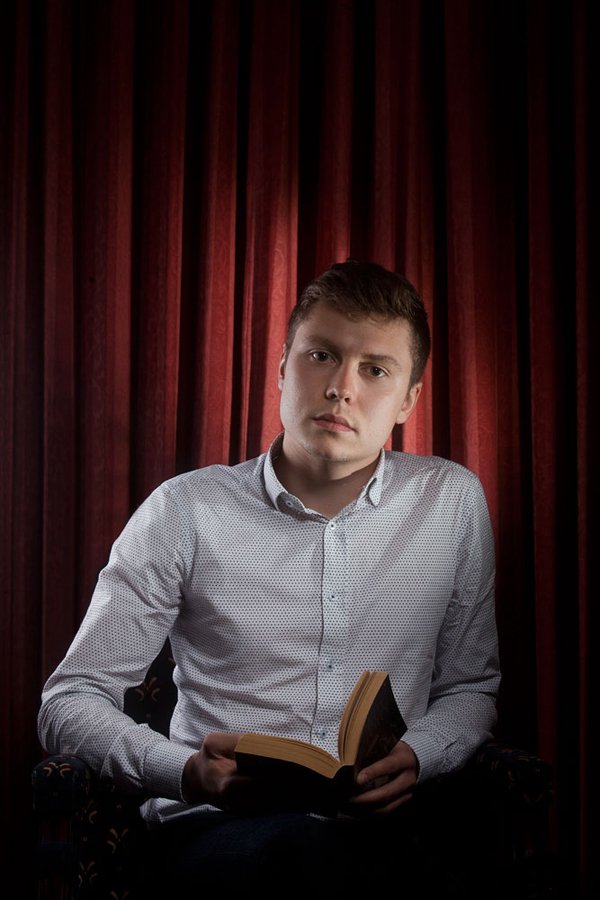
Andrei Catalin Zamfirache – IT Worker – I moved to London last year after graduating from Glasgow University. It was rather tough in the be- ginning but having a good place to live and a stable job has helped. Having left Romania seven years ago, there isn’t really much I miss. Going back is strange. You know you don’t belong there any more when the first question family and friends ask is: ‘So, when are you going back?’
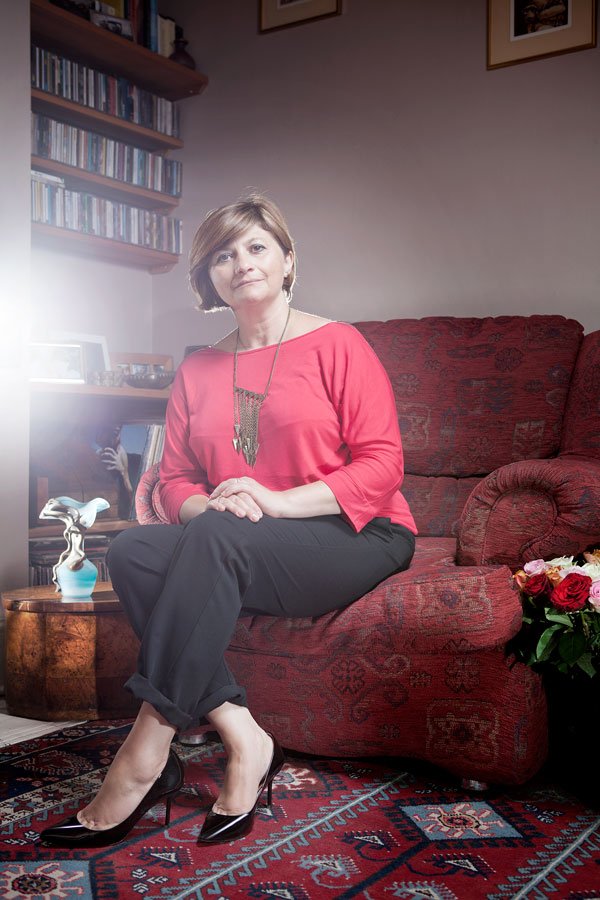
Anne-Marie Martin – CEO of Council of British Chambers of Commerce in Europe I have been in London for 42 years. I was just six when I left Romania in 1968 and I came to London with my parents in 1972. Initially I missed my grandmother most. She was a wonderful person who loved me very much and helped bring me up for the first 6 years of my life. My own family is English, my husband and my children were born here, but we as a family have a very strong sense of my origins and my children’s names are both Romani- an. The main Romanian tradition is to have sarmale (pickled cabbage rolls) with our turkey at Christmas.
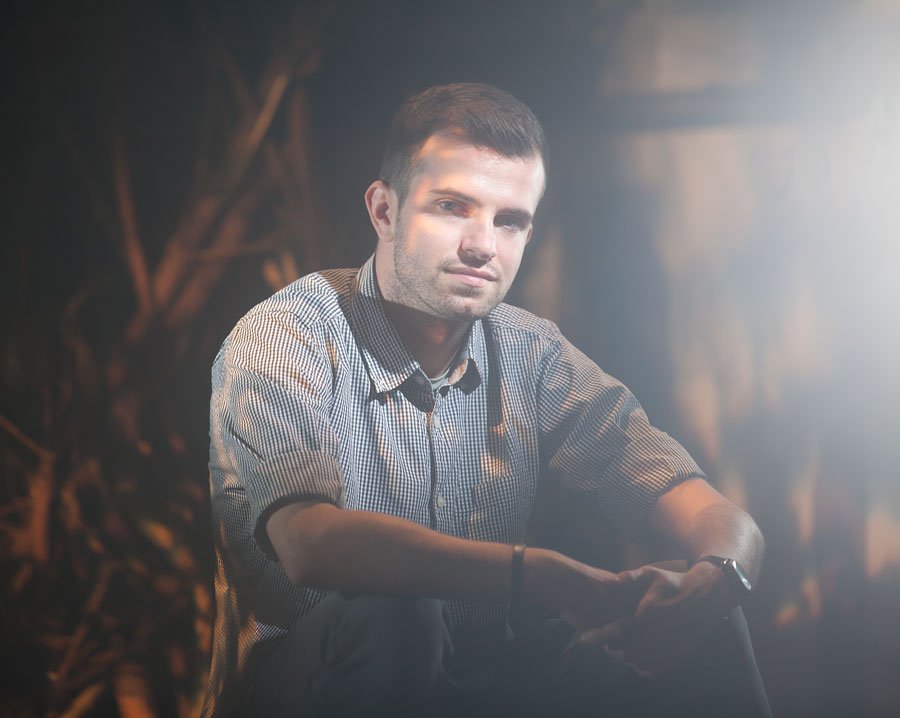
Bogdan Cristi Cretu – hotel cleaner – After I finished university in Romania in 2011 I spent a year trying to find a job in my field (environmental engineering) but had no success. In 2012 I got a job in London through a catering recruitment company. I didn’t know anyone here. I like London because no-one judges by appearances and there are many green places. But I don’t like to see people throw rubbish in the streets, and I don’t enjoy the rush hour. I still want to return some day to Romania because I feel I have more connections with my country than any other.
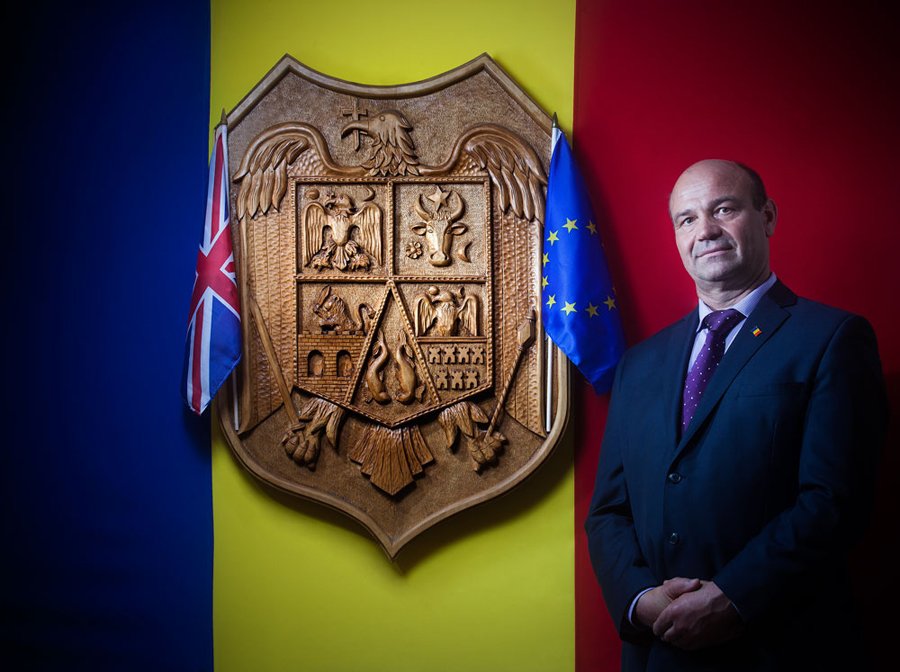
George Betianu – Entrepreneur – My life has changed since I came to the UK. I have become more ambitious and have had more opportunities. I do miss the spiritual connection with Ro- mania. Wherever you go you may find a new place to live but you still feel that connection to your motherland. I did bring something very special to remind me of home: the emblem representing the United Kingdom of Romania. We keep most of the Romanian traditions, and cook Romanian food.
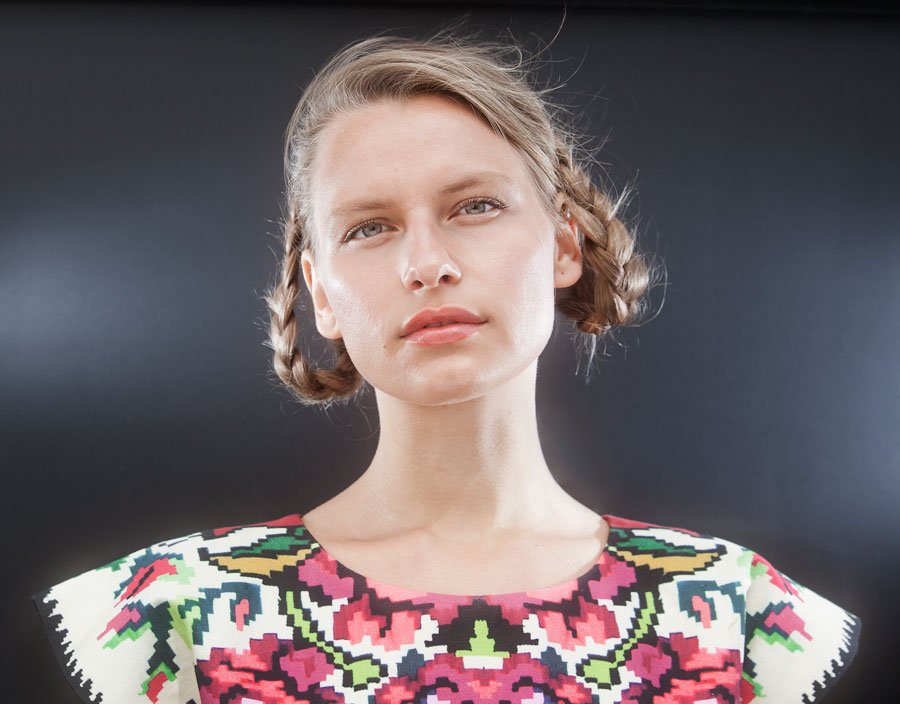
Lana Dumitru – Fashion Designer – I’m studying for a PhD in art and fashion. I’ve been in London a year. My first impression was that it was different from any other place I’d seen. I don’t really enjoy commuting, and finding a place to live can be quite difficult but I like the diversity, freedom of expression and open-minded non-judgmental environment. I brought a traditional Romanian rug with me to remind me of home. I do keep in touch with the Romanian community, mainly because my work is linked to Romanian traditions and cultural values. Home is everywhere and nowhere.
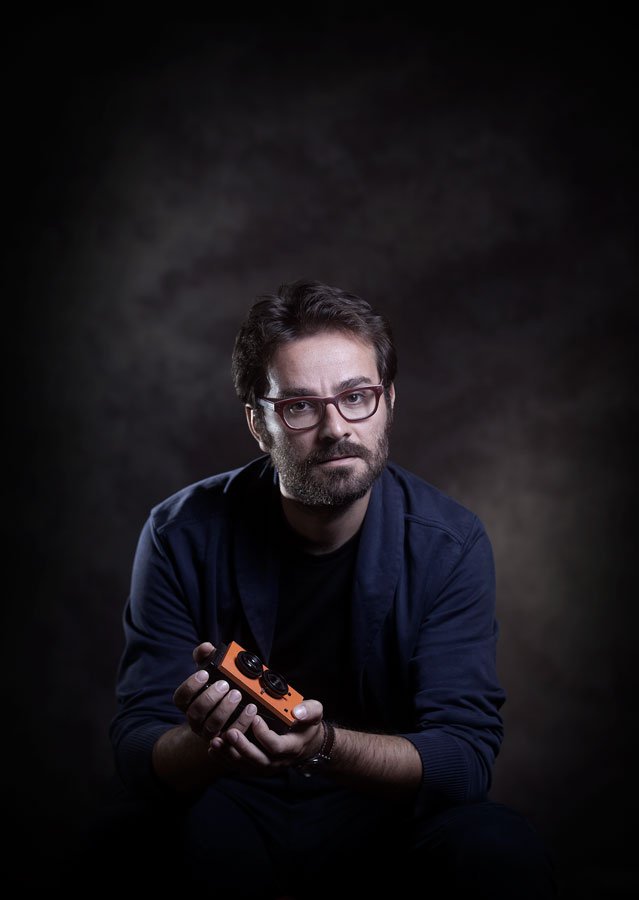
Victor Diaconu – artist – photographer – I came to London to pursue my interest in photography when I was 26. I’ve been here for 7 years now. What don’t I like? Nothing serous. Maybe the feeling of not quite belonging. And drinking habits. My worst experience has been facing xenophobia. But London is a thriving multi-cultural city, where there’s always something going on. You don’t want to get to know it too well, though. I prefer to keep my distance and stay surprised.
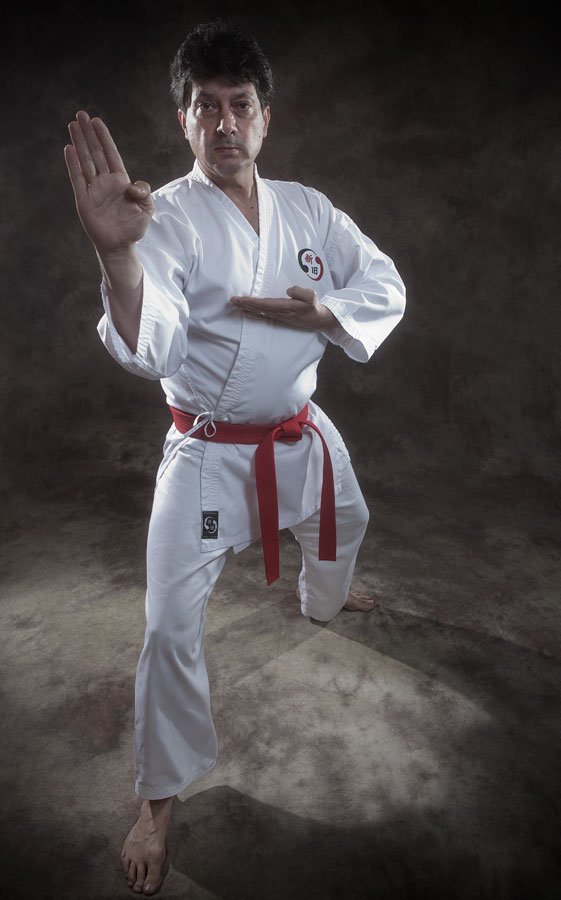
Claudiu Carmaciu – doctor psychiatrist – I came to London 24 years ago with my wife. What brought me to London? A big appetite for democracy and civilisation. I like the grandeur of London, its nightlife and famous landmarks. I keep in touch with many other ex-pats and I have remained active within the Romanian Medical Society in the UK. I have been back to Romania many times, and I still celebrate Easter when Romanians celebrate it, i.e. along with Orthodox Christians.
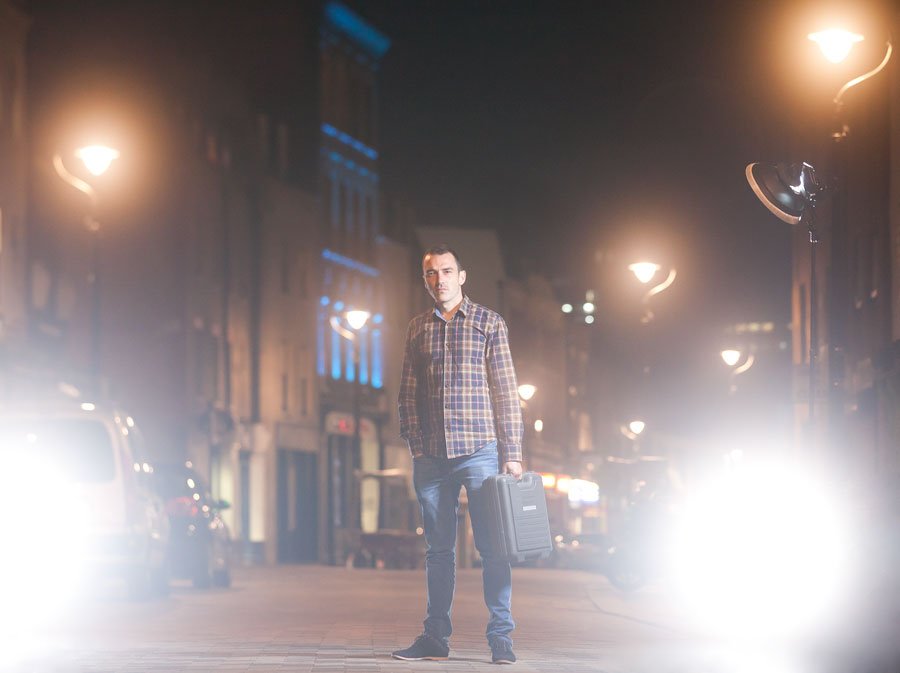
Razvan Vasile Serban – electrician – Ten years ago I was studying in Romania and came to London to save some money. My father was here. I worked in a restaurant, as a driver, and on building sites. There I got experience which helped me to set up my own electrical company. Time goes very fast in London but it is a cosmopolitan place where you can fulfil your ideas. What do I miss about Romania? Our beautiful Romanian girls. I do see my future here but I don’t feel I belong here.
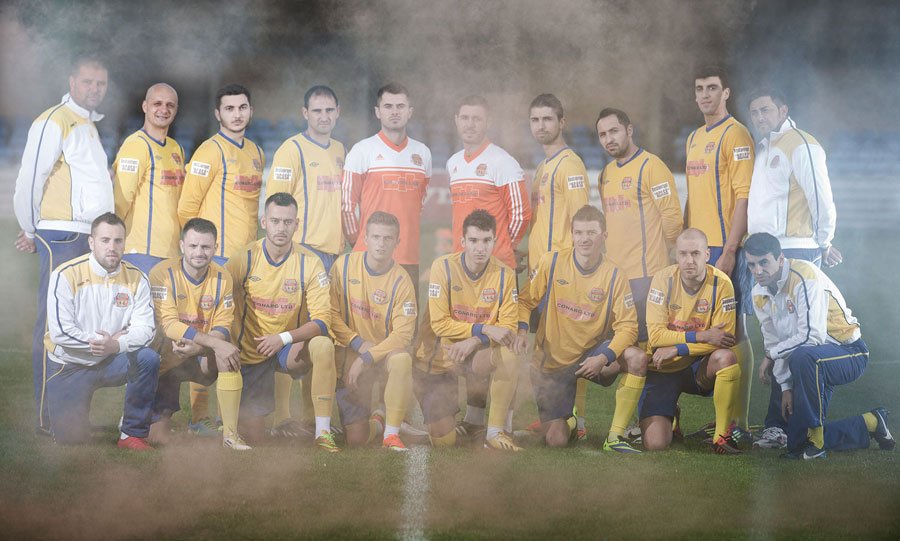
FC Romania (Football Club Romani) – FC Romania was founded in August 2006 by a group of Romanian emigrants who wanted to play football. Over the years the club has grown and be- come not just a place to play sport. It’s now also a place for families and friends to get together in a spirit of community and culture. Its motto is ‘Always Together’ and its vision is to become one of the most successful and respected clubs in north-east and east London.
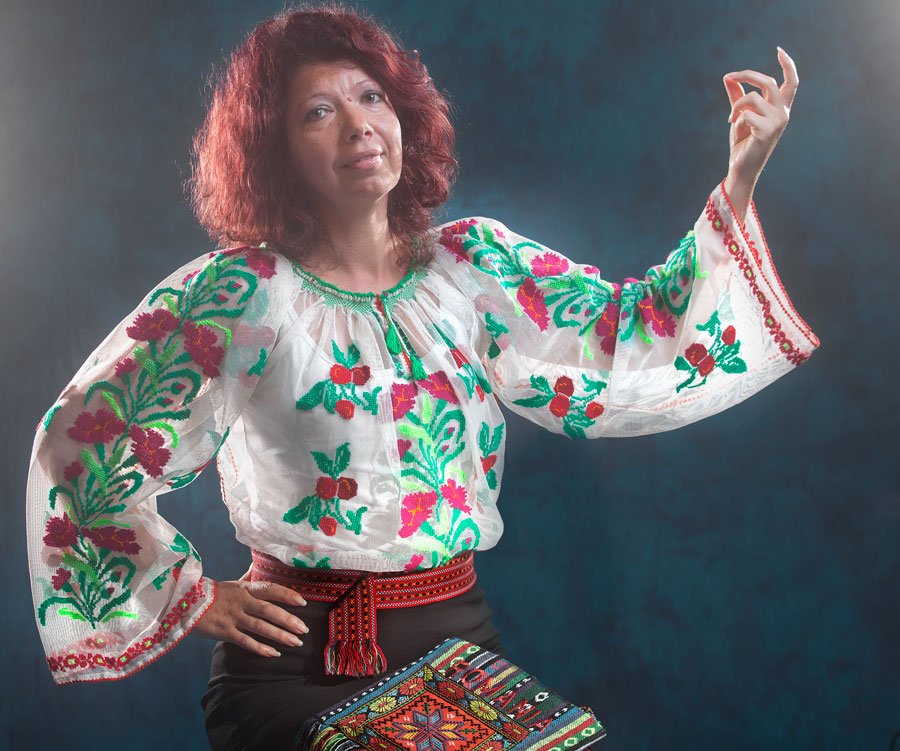
Veronica Costache – Trainer for children – I came to London at 39, more or less as a tourist, to be with my son who had won a scholarship to study the violin. I have been here for three years now. It has changed me in an unexpected way: I am not a tourist any more, but a professional who enjoys her work, achievements, projects and friends. I brought with me a traditional Romanian blouse made by my grandmother. I maintain all the Romanian traditions and part of my job is to transmit and keep them alive for all the Romanians who live in London.
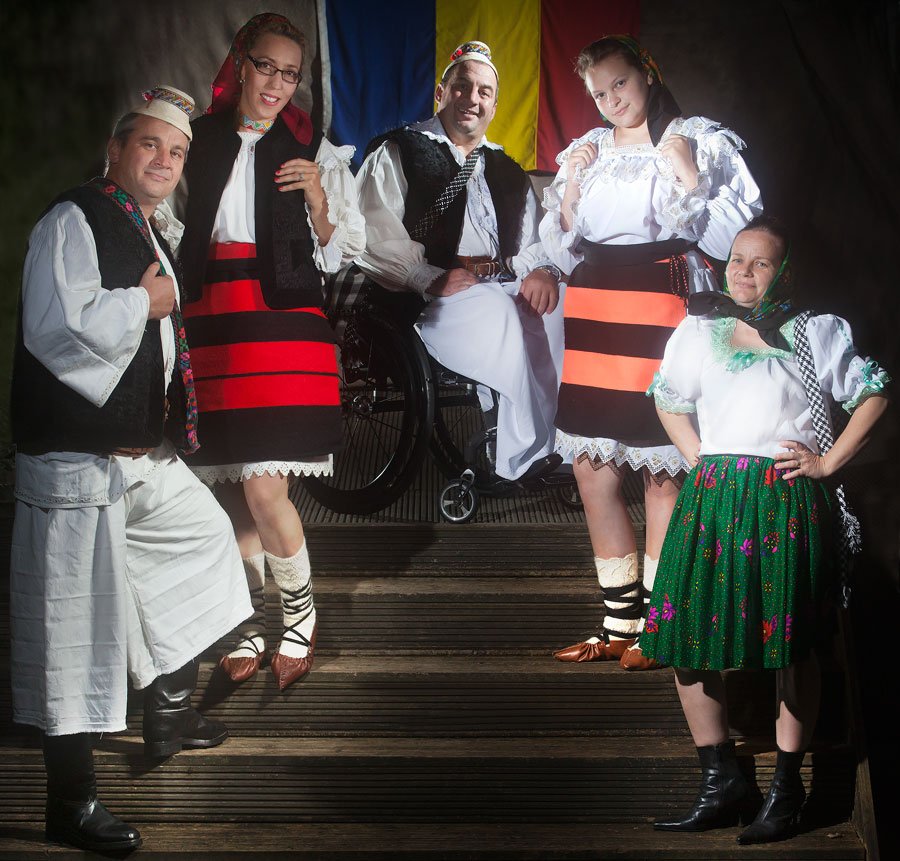
Teo Dunca (left), builder, and family – My brother Gheorge (centre) came to the UK in 2007. He worked in construction for four years until he had the accident. His sister Maria (below right) came in 2011. Her husband was already working as a cleaner in a hotel. Their daughter (top right) is at school in London. My wife Giorgina (second left) works as an au pair. My first impression was of the miserable weather. What don’t I like? Traffic congestion, English food and Nigel Farage. But I have learned about other people and cultures of the world by living in London. I consider London my first home and Romania second.
We hope to see you at the exhibition, but if you would like to take your own portraits them come along to one of our portrait workshops.

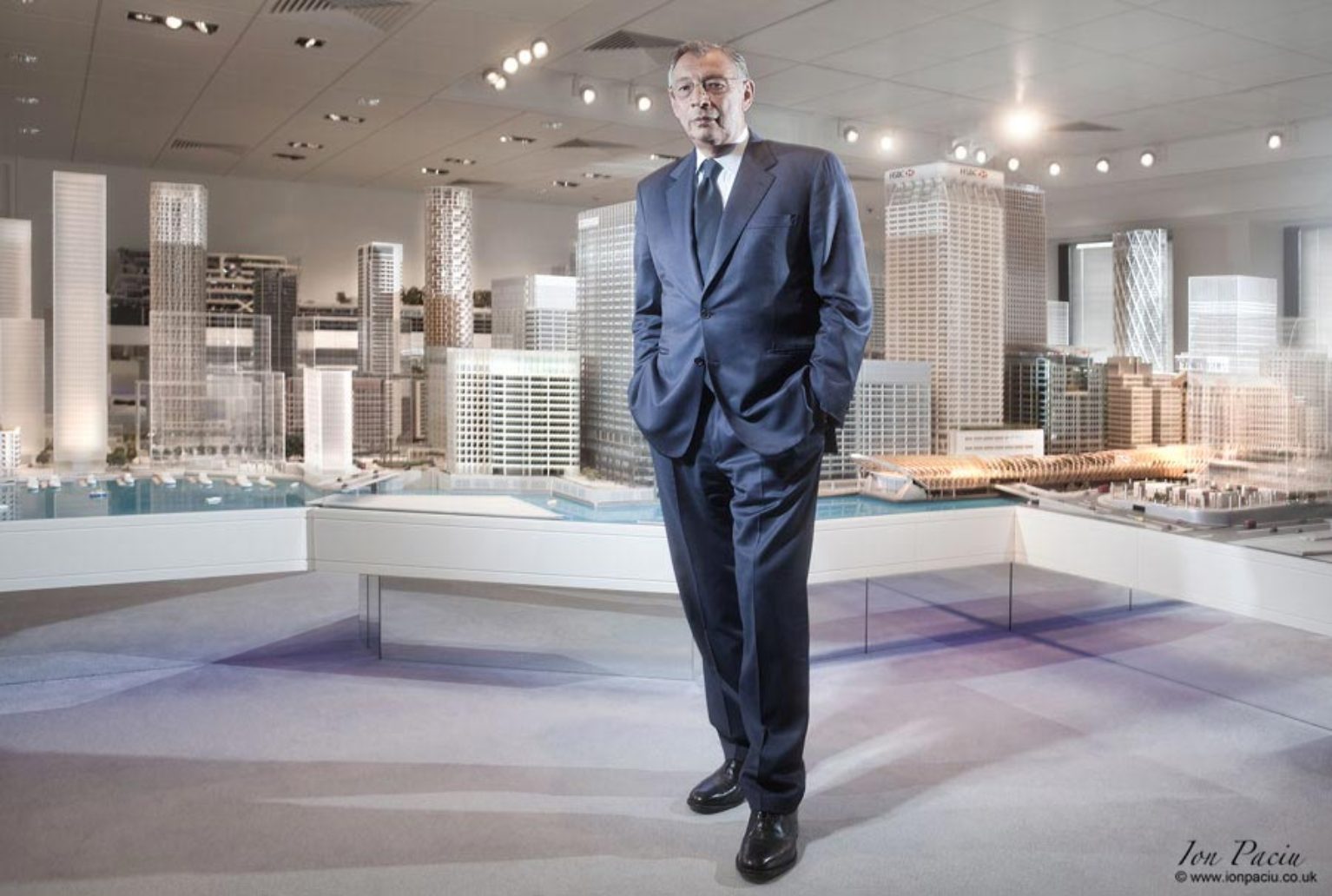
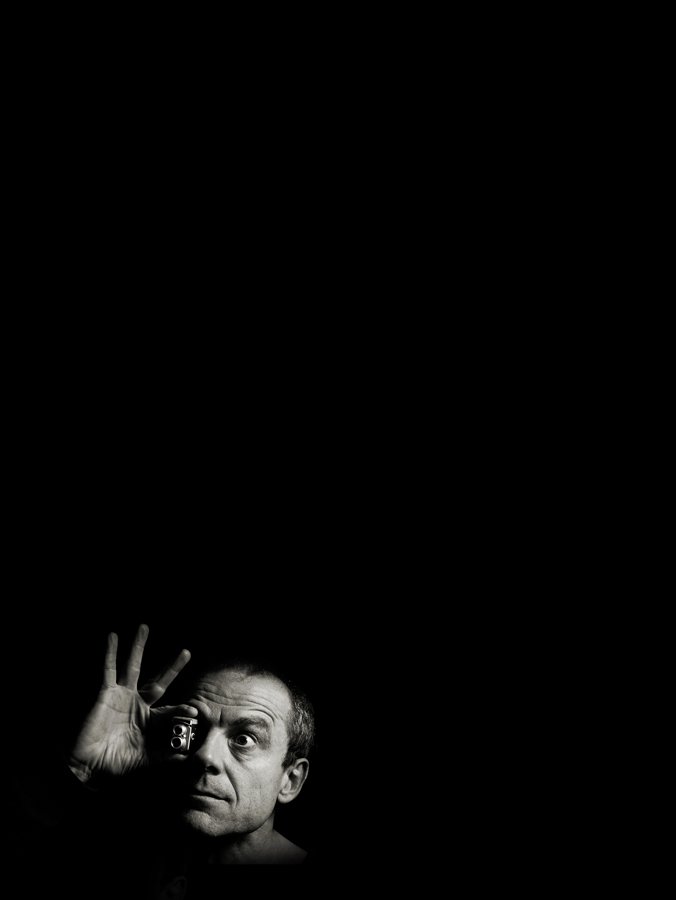

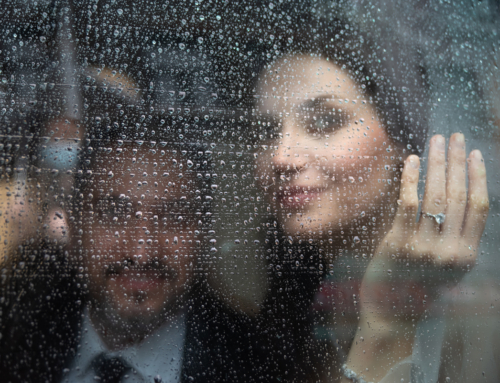
[…] Ion Paciu trăieşte la Londra din anul 2003 – este membru al Royal Photographic Society din Marea Britanie şi este specializat în portrete fotografice şi în fotografie urbană. […]
Amazing shots as usual. Once again you have shown me that you are what I can only aspire to be. Great work.
Thank you very much Roy, I am really glad if I can inspire others. As an educator this is what I aim for, to see people aspiring to take great photographs and help them to achieve their goals!
I really love this project. Inspirational. Make me take the camera out of the box.
Great Florin, we are glad if we ca inspire you!